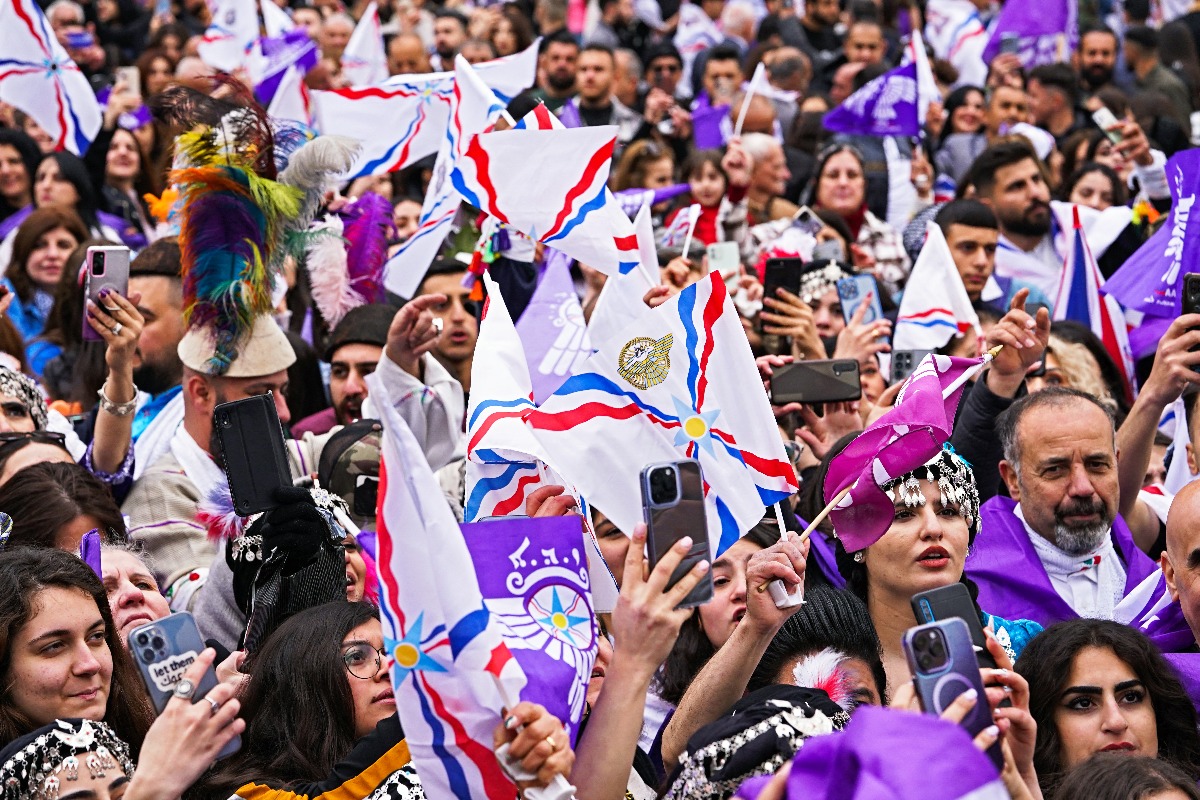It is important to note that the name "Assyrian" was not only present in ancient times, as there is still a community of Assyrians today, which makes the Assyrian new year a celebration of the bond between ancient and modern Assyrians.
In the modern era, the reintroduction of Akitu began in the 1960s, during the Assyrian intellectual renaissance. However, due to political repression, the celebrations were largely closed until the 1990s. Nowadays, modern Assyrians celebrate Akitu for only one day, on 1 April. Mainly in Iraq and the Assyrian diaspora, parades and picnics are held, and there is dancing to mark the holiday. Another custom is that on the first day of spring, Assyrians place wheat on small plates in front of their homes, an important part of the celebration. Assyrians consider the week to be a sacred number, and symbolize this by decorating the table with seven different fruits, such as apples, pomegranates, pears, apricots, peaches, quinces and plums, to celebrate the start of the new year.


